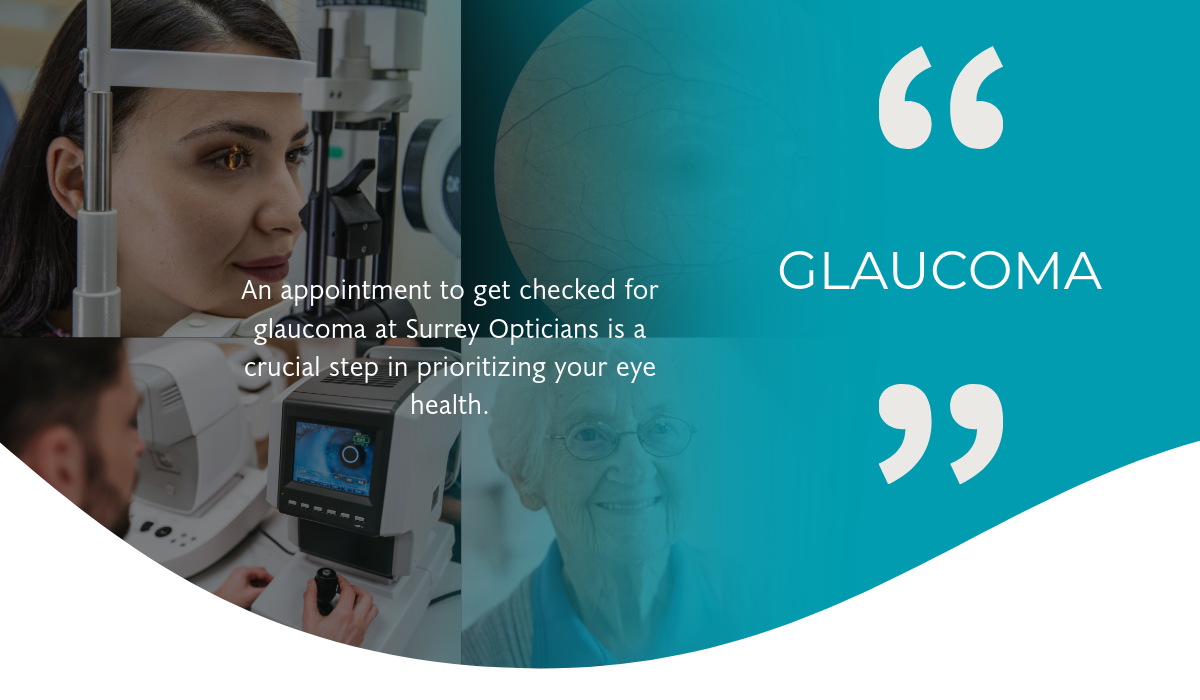
Glaucoma Clinic -
Glaucoma is the name given to a group of eye conditions which can cause optic nerve damage and affect your vision. It’s not curable, but the earlier we can detect it, the more treatable it is. That’s why we screen for glaucoma every time you come for an eye test.
Are you over 40 and a parent, brother, sister or child of someone who has or has had glaucoma? Then you’re entitled to a free NHS eye test with us and we recommend you have one every year.
What Causes Glaucoma?
Sometimes it’s when there’s an increase in pressure in your eye, which usually happens when fluid in the front part of your eye doesn’t drain away properly. Glaucoma can also result from a weakness in the optic nerve, which can lead to damage even when the pressure in the eye appears to be normal.
What Are The Symptoms?
For the majority of people with glaucoma, there are no obvious symptoms until the optic nerve has been damaged and peripheral vision is lost. The good news is that blindness is preventable is glaucoma is diagnosed and treated early enough.
How Do You Test For It?
We have a range of different tests, including:
- Examining your optic disc – by shining a bright light into your eye from either a microscope of hand held instrument.
- Measuring the pressure in your eye – using a tonometer machine that delivers a few puffs of air into each eye.
- Checking your peripheral vision – looking at a sequence of spots of light on a screen.
Are Some People At Higher Risk?
There are certain risk factors that increase your chances of developing glaucoma:
- Age – the older we get, the higher the risk (it’s uncommon below age 40, but primary open angle glaucoma affects 1% of people over 40 and 5% of people over 65)
- Race – if you are of African origin (particularly African-Caribbean) your risk is higher at an earlier age and it could be more severe
- Family history – especially if it’s a close relative like a parent or sibling
- Short sightedness – particularly if you’re very short sighted
- Diabetes
What Is The Treatment?
Glaucoma can be treated with eye drops, laser treatment or surgery.

